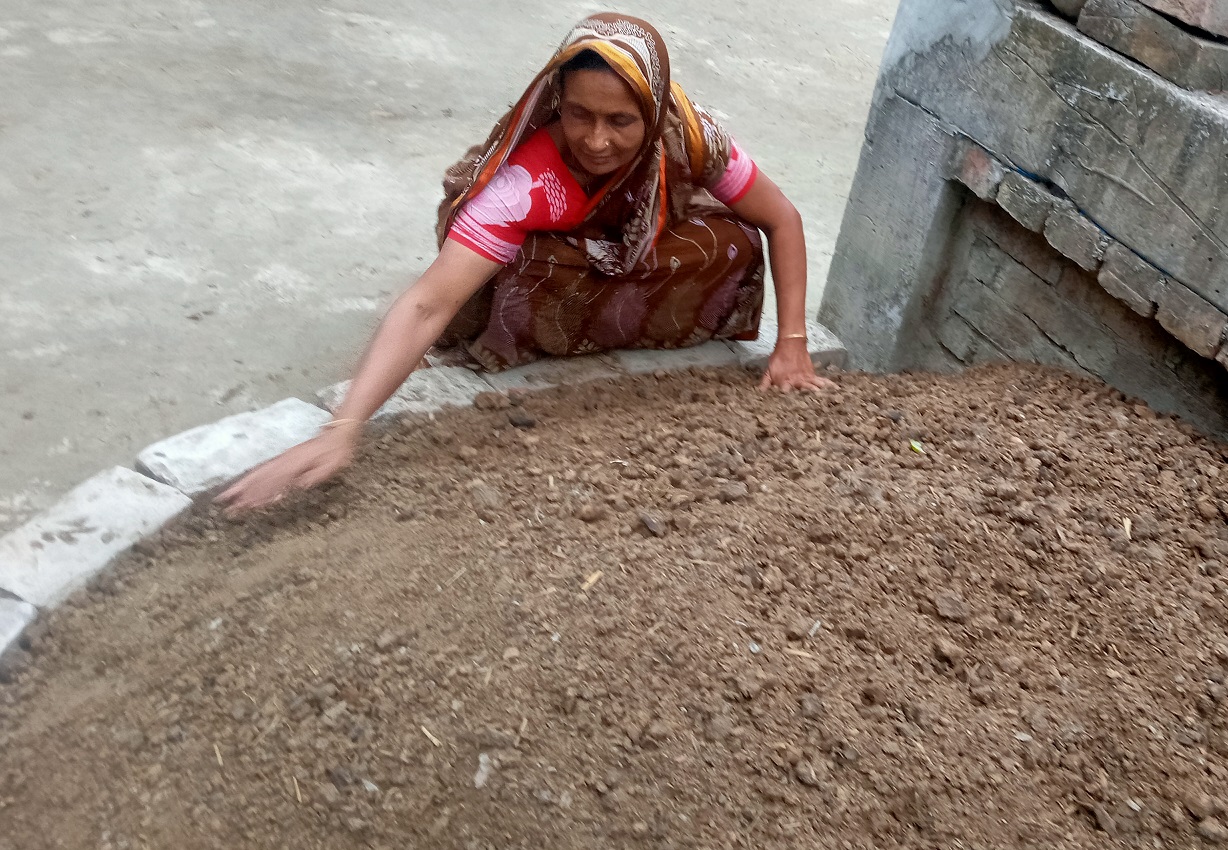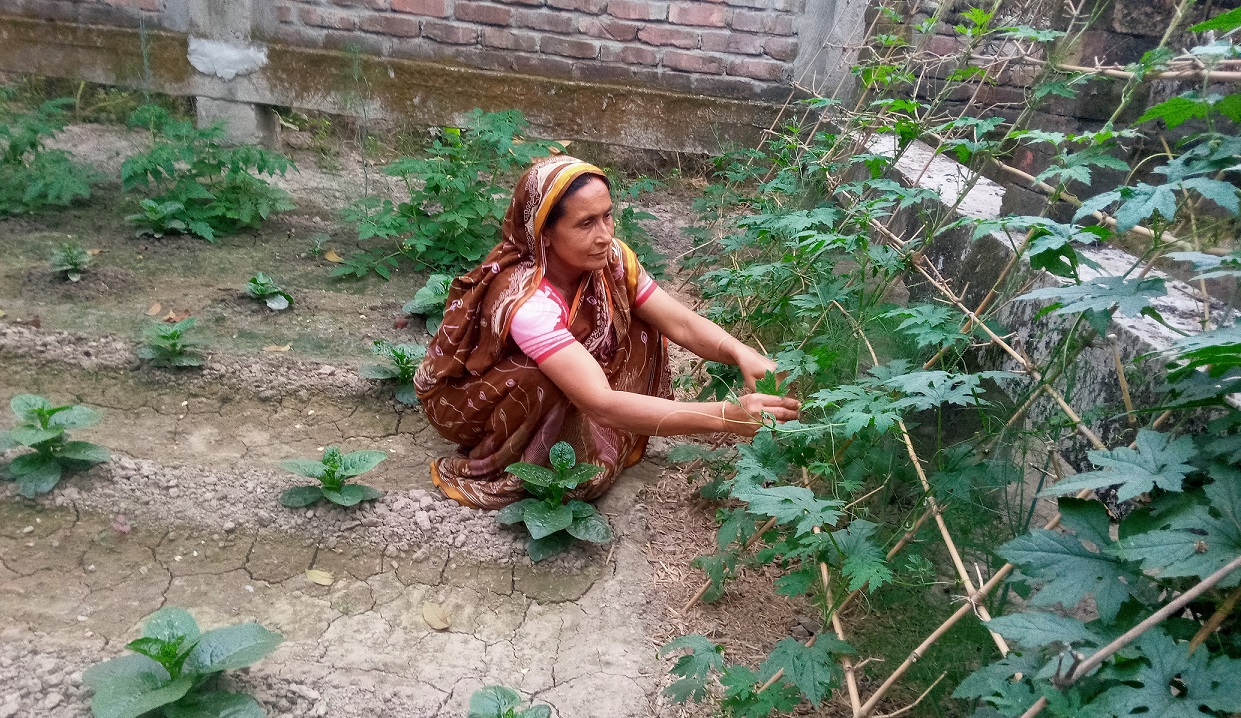By Protima Rani from Shyamnagar, Satkhira
Gopalpur is a village rich in agricultural activity, with most residents engaged in farming. Yet, agricultural work is often challenging due to factors such as soil salinity, waterlogging, saltwater intrusion from canals, and drought. Despite these obstacles, local communities have developed innovative practices that contribute significantly to biodiversity conservation. One such example is the agricultural learning center established by Delowara Begum at her house.
Delowara Begum, 45, resides in Gopalpur village, Shyamnagar Sadar Union, Shyamnagar Upazila, Satkhira. Her husband, Abubakar Siddique, 55, is a farmer. The family consists of five members and owns 2.15 acres of land, cultivating a variety of crops year-round. Her property includes fruit trees such as mango, jamun, date palm, jamrul, lemon, kul, kadbel, guava, bel, coconut, pomegranate, jujube, amra, chabeda, guava pear, banana, and papaya, along with timber species like mahogany, tamarind, reintree, gab, haritaki, and bamboo.

Vegetables grown include taro, water lily, colocasia, brinjal, ridge gourd, pumpkin, bottle gourd, pointed gourd, cucumber, okra, long beans, turmeric, ginger, and chili. She also rears poultry and livestock. She has 25 chickens of four types, 12 ducks of three types, and 2 goats. She cultivates local fish species like koi, puti, and shol in her 0.1-acre pond.
Apart from farming, Delowara Begum serves as a municipal councilor of Shyamnagar and is a skilled midwife. By 2025, she had assisted in the birth of over 4,000 children, earning recognition as a trusted midwife in her community. She has also treated 25 patients with tuberculosis and often provides assistance in solving local issues without compensation. Her contributions to regional development have been recognized with departmental awards.

Delowara Begum said, “My connection with BARCIK began in 2005, and since then I have participated in various programs. With their support, I contested my first Union Parishad election and won.” She went on saying, “My house was selected as a model ‘Shotobari’ for development activities, and over time, it has grown into a learning center.” She further expressed, “Visitors from within and outside the village come to observe and learn from our resources. Inspired by exchange visits to other Shotobari and agrecology learning centers (ALC), I decided to turn my house into a formal learning hub. My dream is for people far and wide to come and learn here.”
It is to be mentioned that the southwestern coastal region of Bangladesh faces severe salinity and climate induced disaster risks. Women like Delowara Begum, who take initiative to establish agreology learning centers, play a critical role in building resilient. Such efforts should receive increased support from both government and private sectors.
